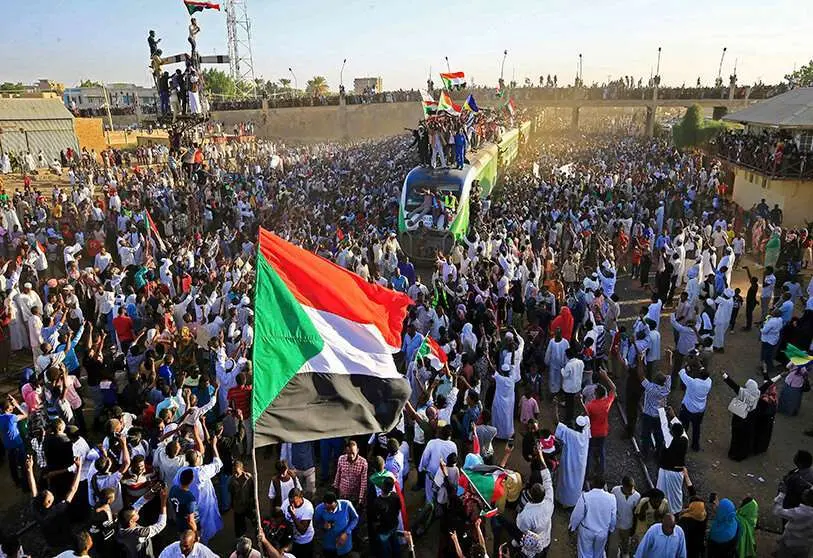Sudan: civilians and military sign "framework agreement" to return to democratic transition

Barely two months after the anniversary of the coup led by Abdel Fattah al-Burhan in October 2021, Sudan is now looking expectantly at what could be the first tangible step back to democratic transition. General al-Burhan, together with Mohammed Hamdan Dagalo - leader of the Rapid Support Forces - and the leaders of the Forces of Freedom and Change (also known as FFC), a political alliance of coalitions - both civilian and rebel - the pro-democracy leader of the opposition to military power, have signed a "framework agreement" that aims to pave the way towards a solution to the crisis that has plagued the country for more than a year.
In a ceremony that seems to reawaken the democratic hopes of the Sudanese people and which also brought together representatives of the African Union and the United Nations (through its special envoy to the country, Volker Perthes) at the Presidential Palace in Khartoum, Luqman Ahmed, director general of the Sudan Public Authority for Radio and Television, read out the content of the signed texts, emphasising "respect for the will of the people by a civilian government".

In the document initialled - consisting of 27 articles - the establishment of a transitional authority to a fully-fledged civilian power in which the armed forces will not participate, although they will be represented in the civilian Security and Defence Council - to be headed by the new prime minister - stands out. To this end, the framework agreement has set 24 months as the timeframe for drafting a new constitution and for holding legislative, executive and judicial elections. Ending the transition period with a comprehensive general election.
According to the agreement, it will be the "revolutionary forces" that will choose the transitional prime minister, and - in order to avoid conflicts such as those that occurred in the past - the latter will be in charge of appointing the director of the Sudanese General Intelligence Service.
Furthermore, the text includes the first guidelines of a military and security reform plan - which will be specified in new meetings - for the creation of a unified National Army that integrates other militias and paramilitary groups, such as the Rapid Support Forces, thus prohibiting all formations outside of what has been established by the state.

"The military institution will definitely exit the political process," vowed General Abdel Fattah al-Burhan, who pledged to transform the army into "an institution subject to the constitution, the law and elected democratic institutions, avoiding polarisation and bias towards any party, group or ideology". In contrast, however, he urged all political forces to "form an independent government of national competence to implement the demands of the revolutionaries".
The abrogation of the 2019 constitutional declaration, the review of all decisions announced by military leaders since the 2021 coup and the supremacy of the Transitional Constitution over the Juba Peace Agreement signed in 2020 are just a few more points on the long list of issues addressed by this "framework agreement".

However, despite the optimism with which various sectors of the Sudanese population have received the news, civilian forces such as the Resistance Committee (a network of Sudanese activists who reject any kind of negotiation with the military leadership), the Justice and Equality Movement (an Islamist group fighting in the Darfur conflict) and the Sudan Liberation Movement (in its faction led by Minni Minnawi) have rejected the agreement, claiming that it only responds to the military interests of the Forces for Freedom and Change formation, and defending the 2019 constitutional text.

"The formation of a credible [transitional] government is crucial to restore the legitimacy of the state," said the UN envoy for Sudan, Volker Perthes, in a speech in which he stressed the role of the international community in achieving the agreement. Other foreign political representatives, such as the EU ambassador to Sudan, Aidan O'Hara, and the US ambassador to Khartoum, John Godfrey, praised the involvement of the "tripartite mechanism", the "International Quartet" and the "European troika".
But, as the Egyptian writer Muhammad Abu Al Fadl concluded in his thesis for Al Arab, "the signing of this framework agreement represents a step that will not succeed unless all parties show their good intentions [...]. Sudan will not be able to withstand a new breach of pledges and agreements as has been the case throughout its modern history'.








